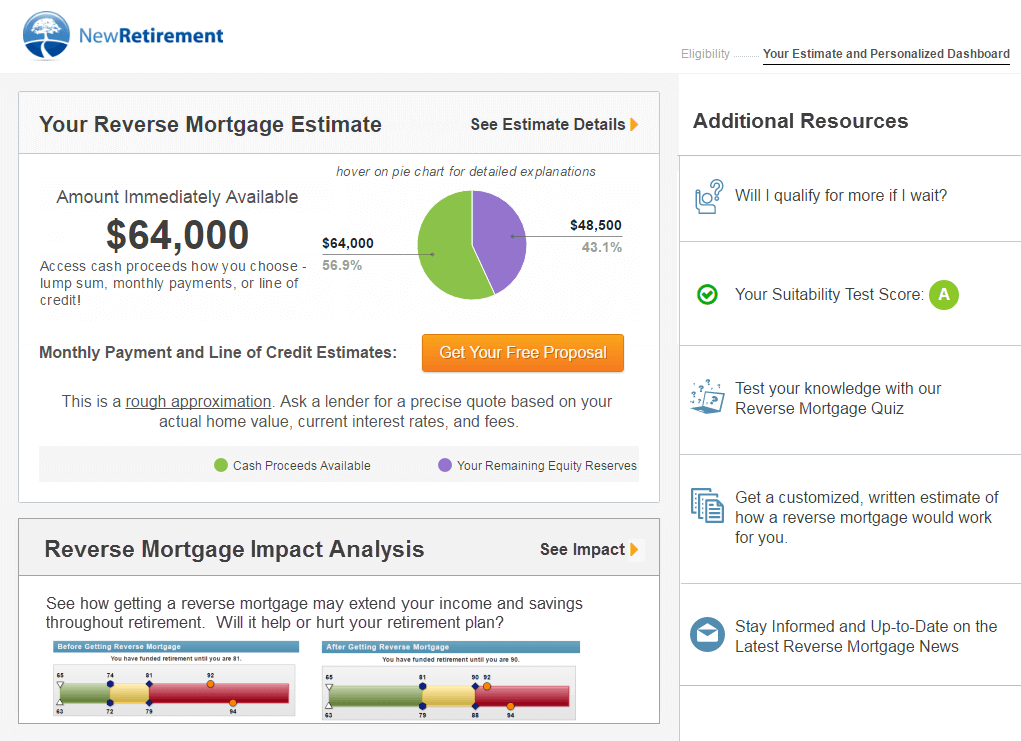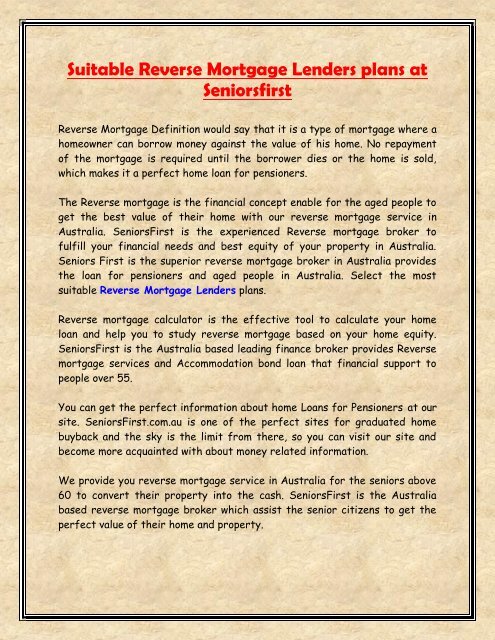Getting a reverse home mortgage is a big decision, because you might not have the ability to leave this loan without selling your house to settle the financial obligation. You likewise need to thoroughly consider your choices to prevent utilizing up all the equity you have actually constructed up in your home.
Reverse home loans typically are not utilized for holidays or other "enjoyable" things. The reality is that many customers use their loans for immediate or pressing financial requirements, such as paying off their existing mortgage or other debts. Or they might think about these loans to supplement their month-to-month income, so they can manage to continue living in their own house longer. Adjustables have five payment options: Set month-to-month payments so long as you or your qualified spouse remain in the home Set month-to-month payments for a set period Unspecified payments when you require them, until you've tired your funds A credit line and set monthly payments for as long as you or your qualified partner live in the house A credit line and set month-to-month payments for a fixed duration of your picking To make an application for a reverse mortgage, you need to fulfill the following FHA requirements: You're 62 or older You and/or a qualified spouse who should be called as such on the loan even if he or she is not a co-borrower live in the home as https://plattevalley.newschannelnebraska.com/story/43143561/wesley-financial-group-responds-to-legitimacy-accusations your main residence You have no delinquent federal debts You own your house outright or have a substantial quantity of equity in it You go to the mandatory therapy session with a house equity conversion mortgages (HECM) therapist approved by the Department of Housing and Urban Advancement Your home satisfies all FHA residential or commercial property requirements and flood requirements You continue paying all real estate tax, property owners insurance coverage and other family upkeep charges as long as you live in the home Prior to providing a reverse home loan, a loan provider will examine your credit history, confirm your regular monthly income versus your month-to-month monetary obligations and order an appraisal on your house.
Nearly all reverse home mortgages are released as home equity conversion home mortgages (HECMs), which are insured by the Federal Housing Administration. HECMs come with stringent loaning standards and a loan limit. If you think a reverse home mortgage might be best for you, find an HECM counselor or call 800-569-4287 toll-free to discover more about this financing option.
A reverse home mortgage makes it possible for house owners, particularly those who are of retirement age, to borrow against the equity in their homes. One benefit of a reverse home loan is that Click here! lenders don't typically have minimum income or credit report requirements, which can help house owners aiming to cover living expenditures. But a reverse home loan includes numerous drawbacks, such as upfront and continuous costs, a variable rate of interest, an ever-rising loan balance and a decrease in house equity.

As its name recommends, a reverse mortgage is the opposite of a standard mortgage loan. With a reverse home loan, you don't obtain money to purchase a home; rather, you take advantage of the equity of your home to secure a loan. A reverse home loan is meant for house owners who have actually settled their home loan or who have accumulated a great deal of home equity.
One of the benefits of a reverse home mortgage is that lenders characteristically do not enforce earnings or credit requirements. Earnings from a reverse mortgage are usually tax-free, and not a penny of the loan requires to be repaid if the borrower remains in the home, pays home taxes and homeowners insurance, and covers maintenance expenses.
Little Known Facts About What Is Today's Interest Rate For Mortgages.
Those situations trigger the requirement for you, your partner or your estate to pay back the loan. Three type of reverse home loans are available: Single-purpose reverse home mortgage: These loans, readily available from federal government companies and not-for-profit groups, are designed for simply one purpose described by the loan provider. For instance, someone might utilize profits from a single-purpose reverse mortgage to tackle a house improvement task or pay property taxes.
Exclusive reverse home mortgage: Exclusive reverse home loans, available from personal lenders, offer more flexibility than single-purpose reverse home loans. Unlike single-purpose reverse home mortgages, exclusive reverse home mortgages normally do not featured constraints on how you can invest the profits. This choice can be particularly appealing to owners whose houses bring high worths and who wish to borrow a significant amount of money - what is the current interest rate for home mortgages.
An HECM, guaranteed by the Federal Housing Administration (FHA), is the most common type of reverse home mortgage. Since 2020, the HECM loaning limit was $765,600. Although proceeds from an HECM can be used for any function, some house owners might not certify due to certain restrictions. These loans are offered only to house owners who are at least 62 years of ages.

Those consist of:: Comparable to a traditional mortgage, a lending institution generally charges numerous fees when you take out a reverse home mortgage. Those can include a home loan insurance premium, an origination charge, a maintenance fee and third-party charges. For an HCEM, the initial mortgage insurance premium is 2% of the loan quantity; on top of that, you'll pay an annual mortgage premium of 0.
You'll likewise pay an origination cost of $2,500 or 2% of the very first $200,000 of your home worth (whichever is higher), plus 1% of the quantity going beyond $200,000; origination charges can not exceed $6,000.: A lot of reverse home loans have variable rates of interest, implying the rates of interest that identifies just how much is contributed to your loan balance each month varies throughout the life of the loan.: Interest paid on a reverse home mortgage can't be deducted on your yearly income tax return till the loan is paid off.: A reverse mortgage can siphon equity from your house, resulting in a lower asset value for you and your heirs.: If your house isn't in great shape, you buy timeshare resale might need to make repairs prior to you can receive a reverse mortgage.: Aside from when a homeowner dies or vacates, the reverse home loan might require to be repaid earlier than anticipated if the owner stops working to pay residential or commercial property taxes or property owners insurance, or if the owner isn't staying up to date with house upkeep.
In addition to its downsides, there are three examples of when a reverse mortgage may be absolutely out of the concern: You wish to move relatively soon. Timing is essential when it concerns securing a reverse home loan. If you're wanting to move in the next couple of years, it may not be a good idea to saddle yourself with a reverse mortgage.